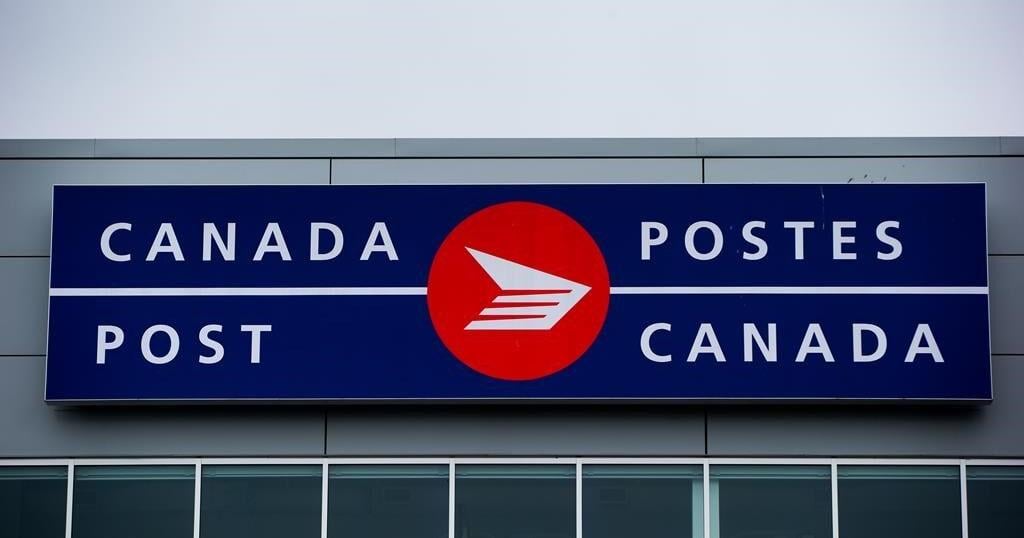LANG, SASK. – Carla Beck steps out of her SUV with her two dogs and starts walking beside a lake near her hometown, the spot where she learned to feed cows, swing a bat and not keep her mouth shut.
Redlicks Lake near the village of Lang, south of Regina, is the NDP leader‘s favourite place to get away and clear her head. She’s gearing up for a provincial election, with polling expected on Oct. 28, in her first bid to become premier.
“I always feel more grounded, more myself, when I get to be out here,” Beck said on a recent fall day.
The sky is grey, starlings flock, crickets chirp and her dogs, Piper and Scout, dash through the grass near acanola field.
“A lot of times people will look and say it’s flat and all the same, but it’s not,” she said. “The skies are always changing, the birds here are always changing. If you look closely, the flowers are different.”
Those close to the 50-year-old say Beck grew up needing to get involved, to make a difference.
“She would stand up for others,” said her mother, Judy Beck, a longtime volunteer and a licensed worship leader who does funeral services.
Her dad, Ray Beck, said she once got punched in the eye as a teen while trying to break up a fight between two other girls.
“She had a beauty shiner,” he said with a laugh.
The oldest of three children, Carla Beck said she knew she wanted to help people as a teen.
She recalled speaking with a girl who had been sexually assaulted. They were both 16 at the time, she said, and the girl was prepared to harm herself. Beck talked her out of it.
“At the end she told me, ‘You’re pretty good at this. You should do this.’ I don’t know if it was as simple as that, but I remember thinking this is something I could do.”
She said her parents always told her to speak out if she saw something wrong.
“What I really couldn’t do — and this won’t surprise people who knew me — I have difficulty keeping my mouth shut.”
Her dad, a former town councillor, runs an outfitting business, taking patrons to hunt ducks and geese. Years ago, the family farmed and raised cattle. The land is now run by his nephews, who give them cuts of beef each year.
When there wasn’t farm work, there was baseball.
Beck’s dad, grandfather and the entire family in 2019 were inducted into the Saskatchewan Baseball Hall of Fame. There’s Beck Field in Lang. Her parents’ home contains trophies, baseballs and other memorabilia — along with NDP flyers.
Beck said her dad would often throw balls for the kids to hit after a day of farming.
“I don’t have a lot of ego in my personal baseball ability,” she said. “I could bat.”
Recently, she came out swinging with a pre-election TV ad showing her hitting balls in a batting cage. Her family liked it, she said, but one of her daughters cringed and her brother thought her swing needed work.
“Saw your ad. Could have given you some pointers,” he teased her in a text message she received while at the Saskatchewan Roughriders football game on Labour Day weekend.
Beck has been in provincial politics for eight years and has spent two of those as leader of the Opposition NDP. She came into that role as the province was coming out of the COVID-19 pandemic and into rising inflation, a top issue in her campaign.
She’s a registered social worker and previously worked at a women’s shelter, a halfway house for youth and the Regina General Hospital.
Beck and her husband, Guy Marsden, married in 1997 at the former United Church in Lang. They live in Saskatchewan’s capital and have three children: Hannah, Nolan and Maya.
In 2009, Beck ran for and won a trustee position with Regina Public Schools. She had advocated to stop the closure of more than a dozen inner-city schools, though some did end up shuttered.
She then decided to get into provincial politics because she thought she could make a bigger difference. She has represented Regina Lakeview since 2016.
Beck said she knows it will be a battle to defeat a Saskatchewan Party government that has been in charge for the last 17 years.
But, like the crickets, canola and starlings of Redlicks Lake, everything has a season.
“People,” she said, “are starting to spontaneously say it’s time for change.”
This report by The Canadian Press was first published Sept. 29, 2024.

























